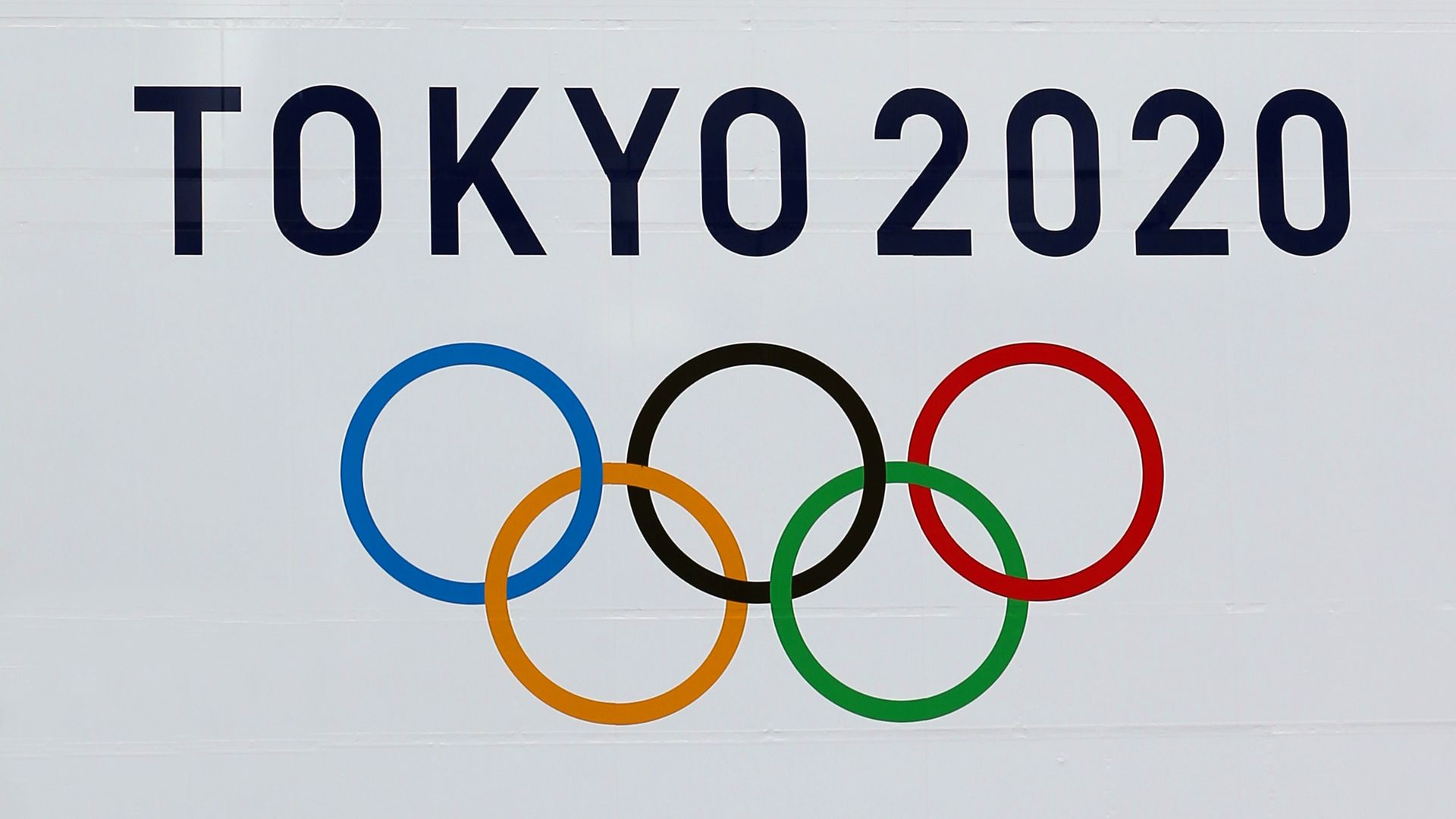Olympic Committee publishes protest guidelines for 2020 Tokyo Games
Add Axios as your preferred source to
see more of our stories on Google.

Photo: Wolfgang Kumm/picture alliance via Getty Images
The International Olympic Committee issued a set of guidelines on Thursday to strengthen a rule that bars athletes from certain forms of political protest at the 2020 Summer Games in Tokyo.
What they're saying... The Committee warns: "No kind of demonstration or political, religious or racial propaganda is permitted in any Olympic sites, venues or other areas."
- Activism such as kneeling, political hand gestures and wearing or holding signs or armbands is not allowed at fields of play, in the Olympic Village, during medal or other official ceremonies.
- But, but, but: So long as athletes follow local laws, they're permitted to express themselves at press conferences, in interviews, at team meetings and on digital and traditional media platforms.
The committee states that "disciplinary action will be taken on a case-by-case basis as necessary" for those who violate the guidelines.
Between the lines: Sporting events, including the Olympics, have a lengthy history of attracting political protests. In the U.S., former NFL quarterback Colin Kaepernick kneeled during the national anthem in 2016 to protest racial injustice, sparking a national dialogue on the issue.
- In 1968, American sprinters Tommie Smith and John Carlos raised their fists on the medal stand at the Games in Mexico City, per the Washington Post.
- Ethiopian marathoner Feyisa Lilesa showed support for civil rights protestors in his home country by crossing his wrists at the finish line during the 2016 Olympic Games, the Washington Post notes.
- American fencer Race Imboden and hammer-thrower Gwen Berry faced probation from the U.S. Olympic and Paralympic Committee last year over protesting during the national anthem.
Go deeper:
